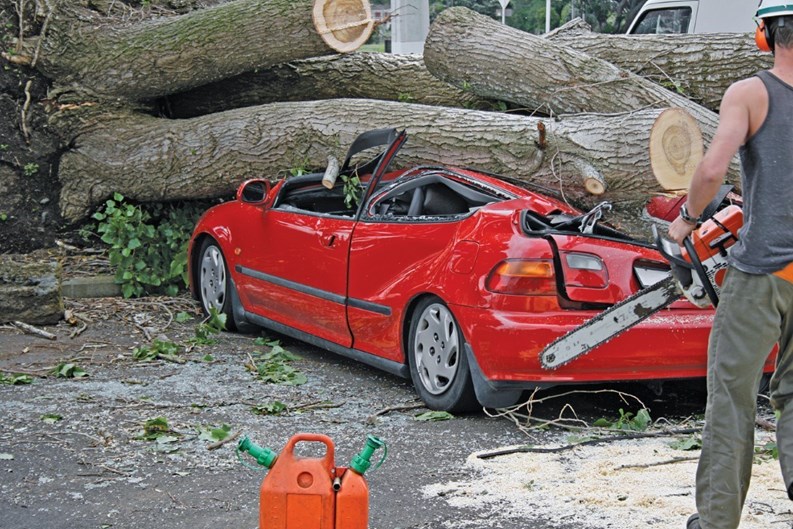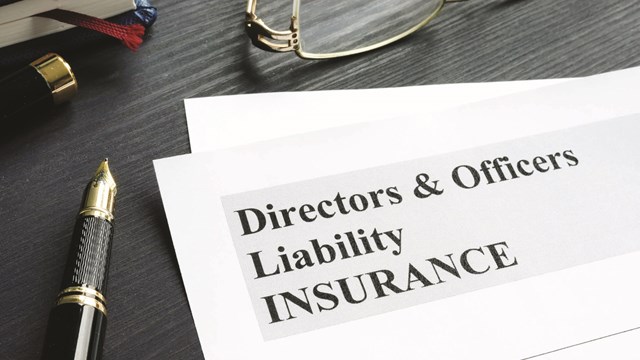Mistakes can happen. It’s a simple fact of life and a simple fact of doing business. That’s why issues of insurance are so important for condominium managers and boards. While it is easy enough to keep up to date on one’s own insurance, making sure the coverage of outside vendors and contractors is in order can be tricky. We all want to believe that our landscapers or snow removal teams or siding contractors are protected by insurance in the event of an accident, but it’s not always easy to be sure. And if coverage is not in place, that’s the kind of mistake that can lead to million-dollar problems for an association.
As with anything, good planning and due diligence can prevent those mistakes before they start. Knowing what to look for and what questions to ask when it comes to insurance and vendors can ensure a smooth – and liability-friendly – working relationship.
Due Diligence
That diligence should start at the beginning. “You should not accept [an insurance]certificate that is handed to you by the contractor, because they can falsify those,” says Ann Hickman, a senior research analyst and editor of Construction Risk Management at the International Risk Management Institute, Inc., in Dallas, Texas. “What you should do is require to have it be sent to you from their insurance agent and have your name on it as a certificate holder. The agent who signs it is testifying these coverages are in force, as of the date that it’s issued,” she says.
“At at minimum,” says Hickman, “the certificate should verify that they have general liability and worker’s compensation insurance.”
Once making sure the contractor has coverage, it’s important to check and recheck coverage. Just because a contractor has proper coverage when the paperwork is first signed does not mean that it still will be in place six months or six years down the road. Especially in today’s economy when so many businesses, both large and small, are cutting corners or coming up shorton monthly bills, the possibility of a policy lapse by an otherwise reputable vendor is all too real. “I would make sure that you instruct the (insurance) agent or broker that you are to be advised if the insurance is canceled or lapses,” says Joel Meskin, CIRMS, of Ohio-based McGowan & Company.
It is important to keep an eye on an intact policy’s end date as well, above and beyond the question of lapses. “If the vendor’s services will continue beyond the effective policy period set forth on the certificate of insurance, then the manager or the association board should make sure a new certificate is provided when the new or renewed policy is in effect and should not allow work during any period wherethere is no demonstrable coverage in effect,” Meskin says.
Worker’s Compensation Needed by Condo
Even if the vendor seems to be covered head to toe in insurance, associations still should not rely solely on the vendor for protection. Associations “need to have workmen’s compensation insurance,” says attorney Seth Emmer, a partner in the law firm of Marcus, Errico, Emmer & Brooks, P.C. in Braintree, Massachusetts. “Under certain circumstances, the condo association could be deemed a statutory employer (for a vendor or a member of his or her crew). In that case, if someone gets injured, they can bring a claim against the condo. The injured employee can collect all damages. Theydon’t have to prove negligence on the part of the association. They just have to prove they got hurt at work.”
Meskin agrees. “In most states, regardless of fault or intent, if it turns out a vendor is uninsured, the association becomes the employer for the purpose of insurance,” he says. It does not matter what type of work is being performed or who is performing it. “If the vendor is uninsured, even if he provided a fraudulent certificate, the association becomes the insurer.”
Specifically, condos can get something called zero employee workers’ compensation, which acknowledges that the association may not have any full-time lawn care or snow removal employees. “But just in case, you’re still covered,” Emmer says. “And the premium is very small.”
Hold Harmless Clause
Another option for condo associations seeking to protect themselves from liability is the inclusion of an indemnification clause in the vendor contract. This clause states that the condo will be held harmless in the event of a claim that arises. “Say a plow hits a car and the owner sues the contractor and the association,” Emmer says. “The hold harmless clause would protect the association.” The vendor, because of the clause, would assume full responsibility and the association would be left out of the equation.
But – and this is an important “but” – the association must make sure that the vendor has a contractually-assumed liability provision in their liability coverage. “It’s not enough to have the hold harmless agreement,” Emmer says. Associations need to make sure that the vendor’s insurer allows that kind of clause and will honor it shouldthe need arise.
Another option when it comes to construction projects or other one-shot events is a product called Owners and Contractors Protective Liability Coverage (OCP), which is a policy that provides liability coverage for the insured for the negligent acts of contractors and subcontractors hired by the insured. “OCP is bought by a contractor for the benefit of his client [the condominium],” says Hickman.” “Its purpose and intent is to provide coverage for the condominium’s liability in connection with the contractor’swork if the condo association is sued by somebody or a claim is made by a third-party for injury or damage.”
What makes this form of coverage unique is the fact that although the contractor or vendor is the one who pays the premium, they do not have the ability to cancel the coverage. “Theclient is actually the named insured on the policy, so it’s not coverage for the contractor, it’s specifically coverage that is provided by the contractor for their client [the condominium],” says Hickman.
Hickman has one caveat about OCP coverage – because of its expense, condos may carefully consider whether it’s worth carrying for smaller jobs. “There is a cost associated with this coverage, usually a percentage of the project, but there is a minimum premium that may apply,” she says. “You could be looking at a minimum of $750 to $2,000, and that typically getspassed back to the property owner [condo]. So anybody who requires an OCP policy needs to understand that they’re going to pay for that.”
“I don’t want to tell people what they do or don’t want to do, but they need to be aware that there’s going to be a cost associated with the coverage and they need to be prepared to pay that,” says Hickman.
Suffice it to say, it gets very complicated but OCP could simplify things for associations. The association’s insurance representative should be able to offer advice and specifics with regardto unusual policies and coverage such as OCP.
How Much Coverage?
With questions of what kind of coverage is necessary answered, the next question becomes, “How much is enough?” How much coverage should an association have? According to Meskin, the simple answer is, “it should be commensurate with the basic general liability limits.” The association’s insurance agent will be able to provide those amounts dependingon the specific coverage requested.
What it all boils down to is the simple fact that insurance is too important an issue to be left to non-experts. Even if the new landscaper comes with impeccable references and an affable attitude, it is absolutely imperative to check all the crossed t’s and dotted i’s in his or her coverage. And it is vitally important to go straight to the source: the vendor’s insurance provider. Never skip steps, never trust that everything is fine without verifying information, facts and coverage.
Associations should never, Emmer warns, sign any contracts with a vendor without having it be reviewed by their lawyer first. A misplaced word, an innocent omission of a phrase–seeminglyinconsequential things could have serious and financially debilitating consequences for any association.
By being prepared, by consulting with experts and by taking some extra precautions including additional coverage, condo associations can protect themselves and stop mistakes before they happen. And there’s no doubt, peace of mind is always worth the extra effort.
Liz Lent is a freelance writer and a frequent contributor to New England Condominium magazine.







Leave a Comment